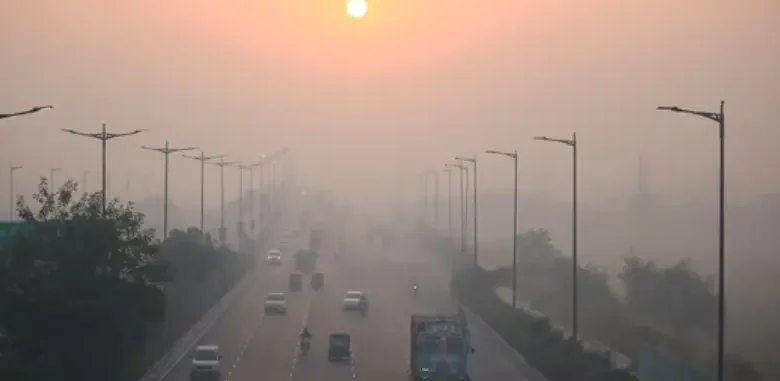Delhi Pollution: 27 Polluted Days Recorded in October Despite Fewer Farm Fires

Delhi Pollution crisis intensified in October despite the fact that farm fires were at their lowest level for five years. The Air Quality Index of the capital was “poor” or “very poor” for 27 consecutive days. This raises serious health concerns and questions the efficacy of the current pollution control methods.
The Center for Research on Energy and Clean Air’s (CREA) analysis shows a worrying trend for Delhi’s AQI. Residents in Delhi endured hazardous air conditions throughout October. Only four days registered a satisfactory AQI. In the city, not a single “good” day (AQI under 50) was recorded. On October 30, the AQI reached 373. This was the highest monthly level in three years. The pollution was persistent even though stubble-burning incidents in the neighboring states had reportedly reached their lowest level in five years.
A representative of the monitoring agency stated that Delhi had 27 days with high pollution in October, when the Air Quality Index hovered between the constant very poor and poor categories. Only four days were satisfactory. Delhi’s air is toxic because of local sources such as vehicular exhaust, industrial waste, construction dust, and discharges. These are independent of seasonal fires. These data highlight the need for an urgently comprehensive plan to control the air pollution in the city year-round.
Between 2015 and 2025, the average AQI for October in Delhi fluctuated from 173 to a maximum of 285. The overall trend shows stagnation, not progress. Manoj K. Kumar, analyst with CREA, said that the sharp drop in 2021 was not an improvement, but an anomaly due to COVID-19 lockdowns, which temporarily reduced baseline emission levels. Delhi’s air is still in poor condition, even though November has already begun. Experts are urging authorities to take immediate, stringent measures for the public’s health.
About the Center for Research on Energy and Clean Air
CREA is an independent organization that researches air pollution, its causes and effects on health, and the possible solutions. CREA supports governments, businesses, and civil societies in moving towards cleaner energy and air by using scientific research and data. This organization uses data-driven analyses to guide public policy and discourse.





